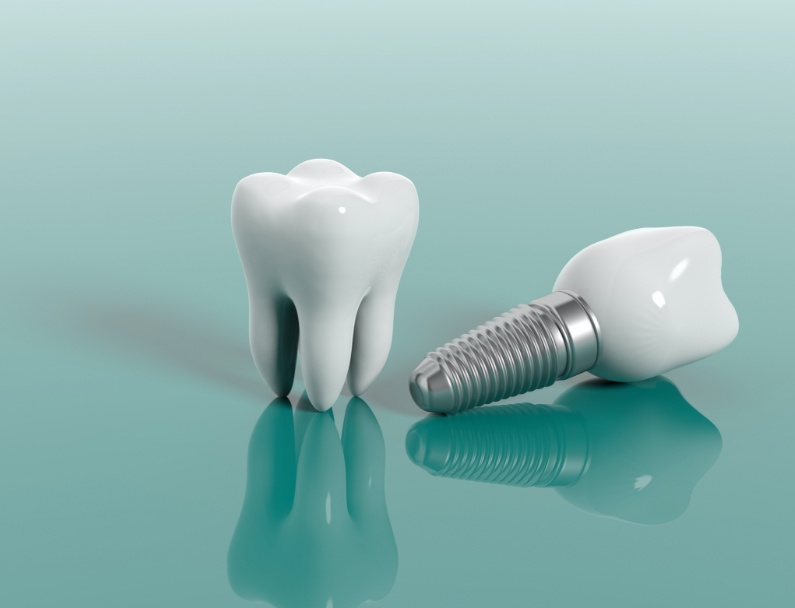Although dental implant surgery has a very high success rate, dental implants near Kissimmee are not meant for everyone, and if not administered correctly, these dental restorations have the potential to cause long-term complications.
Dental implants near you are used at Family Dentistry and Dental Specialists Group as a long-term replacement for a missing tooth. The implant is a biocompatible titanium screw inserted into your jawbone and integrates into your anatomy over several weeks. Once properly fused, a dental implant works to support an artificial tooth or dental crown.
While dental implants are very useful, they are not without their risks. Here are some of the potential complications and long-term problems that can occur as a result of dental implant surgery:
Infection
Your dentist near you will implore you to take excellent care of your dental implants to reduce the risk of infection. It is important that you follow their advice regarding aftercare.
Treatment for a dental infection depends on the location of the infection and how bad the infection is. For instance, a gum infection may require antibiotics, whereas an infection in the bone may require the removal of the infected bone tissue.
Tissue or Nerve Damage
Even if your dentist near Kissimmee is highly trained and experienced, it is still possible that they may accidentally place the dental implant a little too close to a nerve. This can result in long-term tingling, pain, or numbness in the face and jaw.
If you experience a tissue or nerve problem, you need to seek immediate medical assistance.
Peri-Implantitis
This is a type of gum disease that leads to the loss of the jawbone that supports the implant. This occurs as a result of chronic inflammation at the implant site. Peri-implantitis can progress over five years and involves bleeding and swelling around the implant site.
Who is Eligible For Dental Implants?
At Family Dentistry and Dental Specialists Group, we consider dental implants to be a good solution for individuals who are looking to replace teeth damaged by decay or trauma.
However, there are two things that you should consider before getting these dental restorations:
Suitability: dental implants are not suitable for all patients. To get dental implants, you must have good overall health, healthy gums, and a strong jawbone.
Success rate: although uncommon, a dental implant can fail. Dental implants have a success rate of around 95%, but they are less successful in individuals who have diabetes, smoke, or have had radiation therapy in their jaw.
Looking After Dental Implants
The best way to ensure that your dental implant surgery is successful is to follow the advice provided to you by your dental professional. After undergoing dental implant surgery, you should avoid hot foods and beverages and stick to a soft food diet for the first couple of days. Additionally, it would be a good idea to avoid strenuous exercise for two to three days following your surgery to prevent increased swelling.
Just like your regular teeth, your dental implants and the tissues around them require daily brushing and flossing. You should also schedule bi-annual checkups and cleanings with our team at Family Dentistry and Dental Specialists Group to ensure that your oral health stays in excellent condition.
